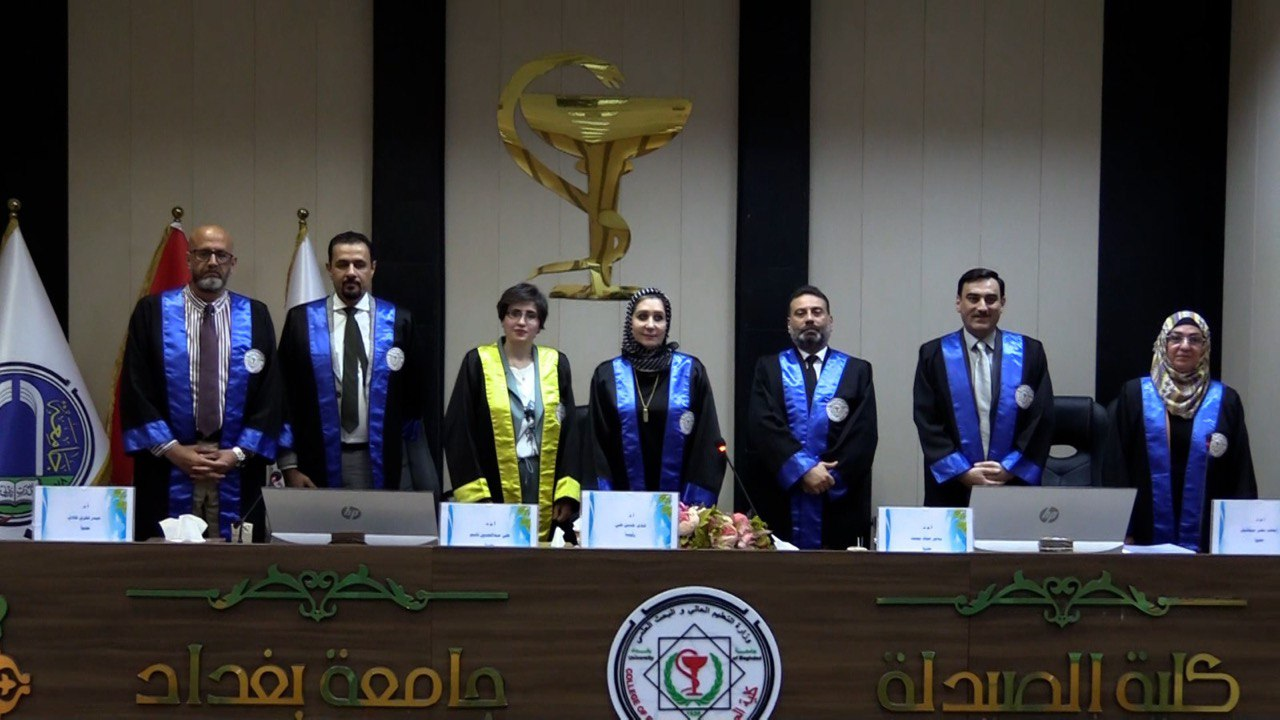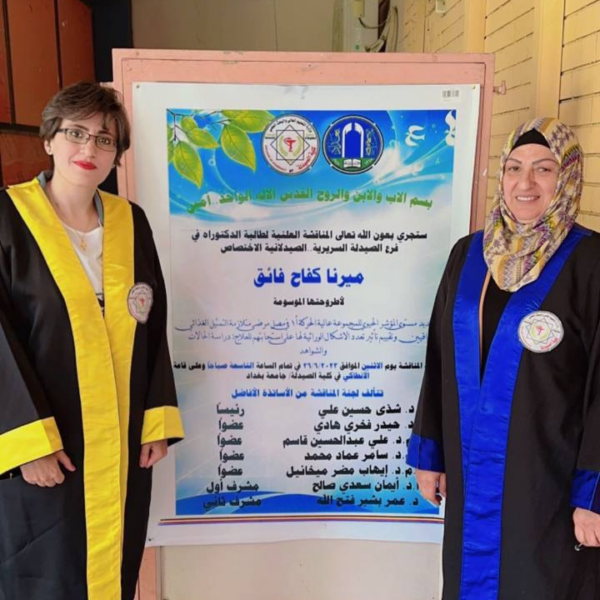The Faculty of Pharmacy discussed the PHD Degree thesis, tagged” Determining the level of high mobility group A1 biomarker in the serum of Iraqi metabolic syndrome patients and assessing the impact of its genetic polymorphism on their response to therapy: a case-Control study,” by Mirna Kifah Faiq and the supervisors, Prof. Dr. Eman Saadi Saleh and Dr. Omar Basher Fathalla in the Department of Clinical Pharmacy.The thesis aimed to determine the level of the high mobility group A1 biomarker in the serum of Iraqi metabolic syndrome patients and assessing the impact of its genetic polymorphism on their response to oral anti-diabetic drugs (Metformin, Sitagliptin, and Glimepiride). In light of the results obtained, the study concluded the following: This study demonstrates that serum HMGA1 concentrations were significantly higher in those with metabolic syndrome, mainly in those with T2DM. Also, the high concentration of HMGA1 was found to present a significant risk of metabolic syndrome, regardless of whether diabetes is present or not. The rs139876191 polymorphism with del/ins genotype in the HMGA1 gene is not associated with metabolic syndrome risk, but it’s associated with indices of metabolic syndrome, including waist circumference, triglyceride, HDL, LDL, VLDL, and HbA1c. A non-significant difference in genotyping and allele carriage frequencies of the HMGA1 gene variants rs1023028442 and rs112081775 was also seen between total metabolic syndrome patients and the control group. The variants of the HMGA1 gene do not predict the risk of an increase in insulin resistance. Besides, a non-significant difference was seen in response to oral anti-diabetic drugs between those with wild and carrier genotypes. The thesis recommended A large investigation is required to examine the association of HMGA1 variants with the presence of metabolic syndrome and T2DM. Additional research on other polymorphisms in the HMGA gene is required.Further experimentation is needed to determine the relationship between intracellular and extracellular expression levels of the HMGA1 protein.Further studies are required to investigate the correlation between HMGA genetic polymorphisms and the response of other anti-diabetic drugs used in Iraq.Since the significance of del/ins, C>T, and G>A variants of (rs139876191, rs1023028442, and rs112081775, respectively) in diabetes patients’ response to a triple regimen of oral anti-diabetic drugs has not been established in the current study, and no previous study has inspected the effect of these variants in other populations, Therefore, it is essential to examine this polymorphism in a larger group of populations with diverse ethnic backgrounds to confirm or refute the results of this study.




